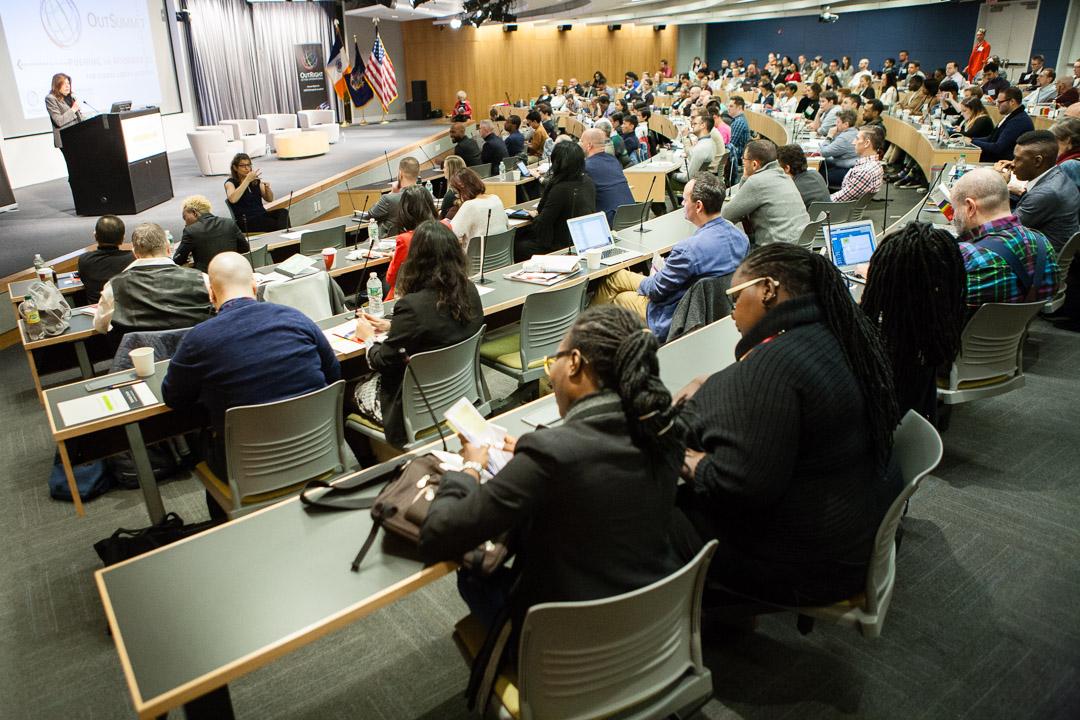
Press Release
Thailand Takes Monumental Step Towards Marriage Equality
New York, New York - June 18, 2024 - Thailand's Senate passed a historic marriage equality law, marking a milestone in Asia's journey towards recognizing the rights of lesbian, gay, bisexual, transgender, intersex and queer (LGBTIQ) people. Marriage equality is set to become law through Royal Assent 120 days after its announcement today in the Royal Gazette.
“The passage of this law is a testament to the decade-long struggle of queer activists for equality, dignity, and effective protection of the law,” said Maria Sjödin, executive director of Outright International. “Thailand has positioned itself as a trailblazer in Southeast Asia and stands out as the third country in Asia to recognize same-sex marriages, following in the footsteps of Nepal and Taiwan.”
The marriage equality law outlines protections for the right to marry and form a family, and most importantly, recognizes the bundle of rights, equality, and dignity that in the Thai context are only accessible through the recognition of marriage. This includes the right to adoption, inclusion through inheritance laws, and access to specific socio-economic spousal benefits. The language of the law is gender-neutral in its recognition of parties to the marriage and will provide long-awaited protections and legitimization of relationships.
While this positive development places Thailand in a position of leadership of queer rights in Asia around the world, it is timely to underscore that human rights are universal, interconnected, and inalienable. In Thailand, there are no legislative and policy protections for transgender, gender-diverse, and intersex people. Thailand should take steps to enact self-determined legal gender recognition and to protect intersex children from non-consensual, unnecessary surgeries and other harmful practices.
The hard-won changes on marriage equality have been achieved despite obstacles in the form of restrictive laws with harsh penalties for outspoken critical voices, such as Article 112 of the Thailand Criminal Code, which carries a maximum penalty of fifteen years imprisonment for the widely defined offense of “royal defamation.” The current constitution of Thailand is drafted by the National Council for Peace and Order by the military. It provides the organs of state, the judiciary, houses of legislature, and the executive with wide powers, rarely subject to democratic scrutiny.
“Thailand’s recognition of LGBTIQ families through the tireless work of its human rights defenders is a crucial step toward building an inclusive, rights-respecting society,” said Michelle Yesudas, director of Outright’s Queer Legal Futures program. “In order for these protections to endure, Thailand must center building public trust, the independence of its state institutions, and effective accountability mechanisms that center LGBTIQ people, human rights defenders, and the most marginalized people in society.”
Thailand’s recognition of marriage equality brings to 38 the number of countries that recognize marriage equality world-wide, allowing same-sex couples to have their relationships recognized by the state. However, the increased polarization is a concern, where a number of countries, such as Russia, Iraq, and Uganda, are increasingly restricting the rights of LGBTIQ people. We have a long way to go before equality is a reality for most of the world’s LGBTQ population.

Read Our Publications
Since 1990, we have partnered with activists from all over the world to produce hundreds of groundbreaking reports.
Learn More